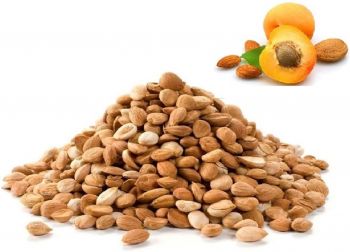Plastic Menace and Alternatives

As per theworldcounts.com, we use 5 trillion plastic bags per year! That’s 160,000 a second! And over 700 a year for every single person on the planet. It takes up to 1,000 years for a plastic bag to break down. Plastics started to dominate the human life just over a century ago with the invention of synthetic plastic from fossil fuel in 1907. Thousands of new plastic products entered in the market after World War II, so fast changing the way we live that life without plastics would be difficult today. The comparatively inexpensive material and its nature of conveniences have led to a throw-away culture making the plastic menace as one of the biggest environmental problems that we face today. Today, single-use plastics account for 40 percent of the plastic produced every year. Many of these products, such as plastic bags and food wrappers, on average are used for just minutes to hours yet they may persist in the environment for hundreds of years.
Environmental Issues of Plastic Waste
There are many environmental issues with the mass production and the use of plastic product. The most important fact is that plastic does not biodegrade. No natural process can break it down. Rather than biodegrade, plastic photo degrades: meaning it fragments into smaller and smaller pieces without breaking into simpler compounds. Do to this non-biodegradable nature, disposal of plastic waste is a difficult task for urban administers and governments all over the world. In most of the cases, waste disposal by landfill is a challenge due to the non-biodegradable nature of the plastic. Therefore the plastic waste can be trapped in our environment for centuries, if not disposed well. Simple cellophane plastic bag is aerodynamic and catches the wind. The wind can carry the bag from a trash bin or virtually from anywhere to water flaw system like river and streams or even through a sewer pipe system it can travel to the ocean. The oceans’ currents and gyrate pull the trash out into a patch and there are “garbage patches” all around the world’s ocean. Through the constant contact with sunlight, the plastic breaks down into micro plastics. These micro plastics are eaten by fish and because micro plastics don’t biodegrade, they bio-accumulate in fish. Thus it enters in to the natural food chain like bigger fish eat these small fish. This food chain produces biomagnifications, which is the process by which a pollutant increases its concentration in tissues as it travels up the food chain. As a result, micro plastics poison the food chain all the way up to human beings.

Apart from these, millions of animals are killed by plastics every year, from sea birds to land based animals like elephants, zebras, camels etc. These deaths are caused mainly by entanglement or starvation. Marine animals like seals, whales, turtles, etc. are strangled by abandoned fishing gear or discarded fishing items. Micro plastics have been found in more than 100 aquatic species, including fish, shrimp, and mussels and all the way to our dinner plates. This is what makes plastic so harmful to wildlife, human and the environment.
What change is necessary in our lifestyle? While we fully comprehend the issues related to plastic waste, we can start follow a sustainable and planet friendly practices which will reduce the impact of our action. We can help reduce plastic garbage patches in our oceans and land by moving to a more sustainable life style. Our attitude needs to be changed in to a sustainable model where the 3 Rs are to be remembered: Reduce, Reuse & Recycle.
1. Reduce our overall consumption is about respecting our natural resources, only using what we need, and refusing unnecessary excess.
2. Reuse – whenever practically possible, avoid single use plastics and instead move to a product where more life span or multiple use is possible.
3. Recycling – think before you waste as our act eventually going to affect the environment and follow the recycling methods.
What alternatives are available?
1. Use reusable Shopping bags
One of the major plastic waste generator is our grocery shopping. On an average we use these shopping bags for 12-14 minutes and it ends up in the garbage. Have you ever thought of changing this habit? Why not carry a re-usable shopping bag during your next visit to your grocer. It is smaller than your wallet and easy to carry than you think. Reusable shopping bags are meant to be used year after year - saving the ocean from plastic harm and the environment from manufacturing waste. Designer Eco Friendly Reusable Grocery Shopping Bags are excellent in quality and are intended to last a lifetime.

2. Use reusable masks
As per the study from Science Daily, it estimates that we use an astounding 129 billion face masks globally every month - that is 3 million a minute. Most of them are disposable face masks made from plastic microfibers, which means thousands of tons of extra waste going to landfill. One of the solutions to stop this from becoming the next plastic problem, it is being suggested to replace disposable masks with reusable face masks like cotton masks. Hand-woven Khadi cotton masks are a best option as the material is carbon-neutral fabric that it allows air circulation and absorbs body moisture.

3. Take reusable cups and bottles for carrying and drinking water
One of the most discarded single uses plastic items is water bottles. Keeping water for long in these bottles are not healthy especially when the water gets warm or when the plastic bottles are being reused repeatedly. Instead of single use plastic bottles, switch to a reusable bottle is the simple solution which everyone can adopt. Copper water bottles are the traditionally proven alternative to single use plastic water bottles and it has its own health benefits too.

4. Use bio-degradable straws
Since single-use plastic made straws are often littered, they make their way into our oceans and endanger precious wildlife. One study published estimated as many as 8.3 billion plastic straws pollute the world's beaches. They’re too small to be recycled, so they end up in the landfill by the millions. Instead of plastic single use straws, start using organic single use straws made with disposable coconut leaves which are eco-friendly and bio-degradable. Also there bamboo straws, re-usable steel straws available in the market easily.

5. Buy plant based plastic products
Human endeavors in finding an alternative to plastic has brought us the plant based fibers such as bamboo fiber, corn fiber and wheat straw fiber etc. in to the market. Finding an alternative to plastic based products is not difficult now. Checkout the products made of with bamboo fiber, wood, wheat straw etc and it guarantees better safety and health.
6. Zero waste kitchen products
Another major contributor to plastic waste is our kitchen. There are alternative to synthetic kitchen cleaning products which may release micro fibers to our digestive system. The coir based cleaning products are extracted from the husk of a coconut which is usually discarded after its juice and meat have been consumed. It is considered as a sustainable and eco-friendly alternative to nylon and other synthetic fibers. Checkout the cleaning products such as coconut fiber handmade bottle cleaner, coconut fiber handmade body brush, coconut Fiber Floor & Laundry Scrubber and Coconut Fiber Dish Washer Coir Scrubs for better health and be good to planet.
7. Use reusable beeswax food storage wraps
Reusable beeswax food storage wraps is a healthy alternative to plastic wraps that we commonly use in kitchen to store food. These wraps are the sustainable, natural alternative to plastic wrap for food and they can last up to one year with proper care. They shape to objects and form a tight seal. Unlike plastic which are single use item, this wraps are washable, reusable and compostable. This is made of 100% cotton cloth, sustainably harvested bees wax, organic jojoba oil, and tree resin.
With a little change in our habits, we can make a huge impact to our planet. These products are provided as an alternative to an eco-conscious generation who are looking for a healthy and sustainable life style and look for beyond the normal.
- General (9)
- GC Flowers (3)






